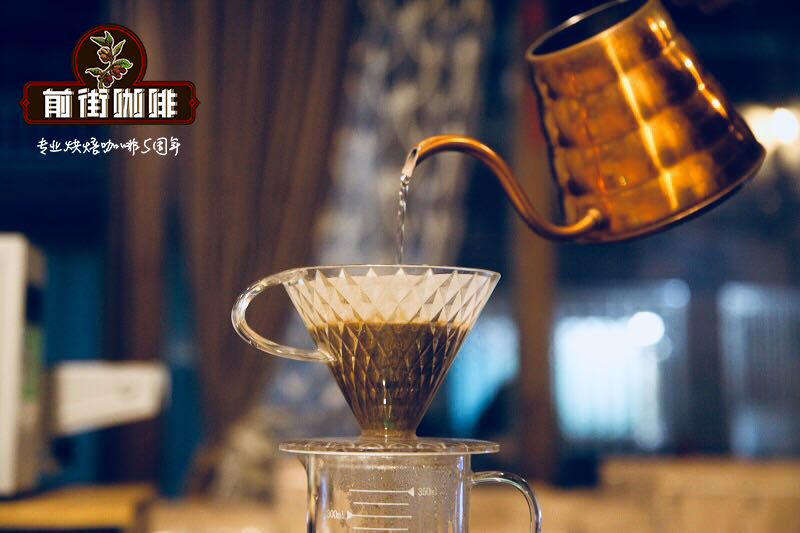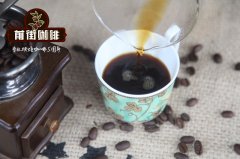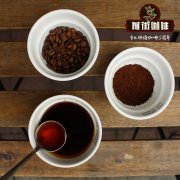Demonstration of Bourbon Coffee brewing in Kawa River of Musasha treatment Plant in Rwanda. Analysis of Rwandan Coffee Market

Professional coffee knowledge exchange more coffee bean information please follow the coffee workshop (Wechat official account cafe_style)
Know "Rwanda Musasha"
Governor Ken de Kawa-Red Bourbon
Producing area: Rushashi, Rwanda
Producer: du Ken de Kawa Cooperative
Treatment method: traditional washing method
Grading: no grading
Variety: 100% red bourbon
Haiba: 1500muri 2000m
Flavor description: nut cream, sweet sucrose, citrus flavor, good acidity, body thick, tail plum flavor.
The market for Rwandan coffee:
Rwanda coffee is absolutely high quality in the form of washed Arabica beans. As far as Africa is concerned, its coffee industry is remarkable because the country thrives mainly by producing the best possible coffee beans. Coffee from Rwanda is becoming more and more popular in the international market.
The mission of the Rwanda Coffee Association is to manage and supervise the operation of the coffee industry in Rwanda from production to sale. The recently revised mission focuses on policy formulation and implementation, with more emphasis on the need to improve the professionalism of the coffee industry and to increase marketing efforts. Since the establishment of the Rwanda Coffee Association, it has promoted the Rwandan coffee culture and promoted the influence of Rwandan coffee.
But in any case, the soft and full-bodied taste of the country's coffee is great.
In 1904, when the Germans planted the first coffee tree on the land of Rwanda (actually in a monastery, which is similar to many countries), coffee slowly changed the fate of the country.
In 1917, Rwandan coffee began to be exported.
The natural conditions in Rwanda are more suitable for coffee growth-high altitude, mountainous, two rainy seasons, stable precipitation.
But at that time, the government was Belgian, they controlled the export of coffee, and farmers did not have the ability and will to improve the quality of coffee, so Rwandan coffee did not have a high reputation, usually sold to instant coffee companies or low-cost coffee blending companies.
After 1994, more and more people in the world began to pay attention to this poor country, and some of them helped to build coffee washing stations.
The United States Agency for International Development (USAID) helped build the first washing station in Rwanda in 2004 and trained farmers through coffee cooperatives to improve planting and handling techniques.
They even provide members with health insurance, advance tuition fees, loans, and so on, which are a bit like domestic rural credit cooperatives, and they can even use coffee fruits to repay loans.
With washing stations (to date, there are more than 300 in Rwanda), improved cup testing and planting techniques, high quality bourbon coffee and higher prices for boutique coffee, farmers have a strong desire to improve the quality of their coffee.
In 2010, Rwanda became the first African country to host the COE (not CEO, Cup Of Excellence).
Nowadays, when it comes to Rwandan coffee, many people who have drunk it will think of things such as
Words like "soft", "full of flowers" and "rich in sweetness".
However, some coffee makers criticize their "The Potato Defect"-some coffee beans in Rwanda and Burundi are infected with bacteria and smell like potato skins after being roasted.
In 2017, 23 years after 1994, the United Nations peacekeeping force is still maintaining the hard-won peace in Rwanda.
There are also many Chinese doing business there.
A friend in Rwanda said it was safe around the blue hat. But I still don't advise you to run there.
Yesterday, the Taiwan Baker Cup tested that a kind of beans from Lake Kivu was very amazing. the boss said that now there are dense mountains and forests near Lake Kivu, there are also guerrillas, and some farmers have AK47.
Say something a little bit moral kidnapping.
When we try to understand the boutique coffee in Rwanda, we are actually changing the fate of these poor farmers.
Analysis of brewing coffee of bourbon species in Kawa River in Rwanda Coffee-Musasha treatment Plant
Hand punch reference
Stew with V60 filter cup, 15 grams of powder and 30 grams of water for 35 seconds, extract at 89-90 degrees Celsius, 1:15, grind small Fuji 3.5 in medium and fine, cut off water in 140ml for the second time, and then slowly inject water until the water drops, the speed is uniform, the water level should not be too high, inject water again until 225ml stops, extraction time 2:00 seconds--
Quickly bring out the attractive aroma of citrus when brewing, and feel the feeling of citrus black tea after the entrance.
END
Important Notice :
前街咖啡 FrontStreet Coffee has moved to new addredd:
FrontStreet Coffee Address: 315,Donghua East Road,GuangZhou
Tel:020 38364473
- Prev

Introduction of Rovuma producing area | Tanzania coffee is recommended for roasting | Coffee with alcoholic flavor
Professional coffee knowledge exchange more coffee bean information please follow the coffee workshop (Wechat official account cafe_style) Rovuma is located in the southernmost district of Tanzania, the height of coffee is about 1300 meters to 1800 meters, because coffee is grown on volcanic soil, and the famous Rovuma River flows through it, which may make the coffee produced in Rovuma region of Tanzania have a special aroma of wine.
- Next

Production method of Rwanda Gorilla's Coffee bourbon coffee beans _ what is suitable for Rwanda coffee
Professional coffee knowledge exchange more coffee bean information please follow the coffee workshop (Wechat official account cafe_style) Gorillas coffee is 100%Arabica bourbon coffee. Absolutely high quality. Its taste is described as a grassy aroma with tropical climate characteristics. Such fertile soil and suitable climate in Rwanda contribute to plant growth. And the best coffee
Related
- Detailed explanation of Jadeite planting Land in Panamanian Jadeite Manor introduction to the grading system of Jadeite competitive bidding, Red bid, Green bid and Rose Summer
- Story of Coffee planting in Brenka region of Costa Rica Stonehenge Manor anaerobic heavy honey treatment of flavor mouth
- What's on the barrel of Blue Mountain Coffee beans?
- Can American coffee also pull flowers? How to use hot American style to pull out a good-looking pattern?
- Can you make a cold extract with coffee beans? What is the right proportion for cold-extracted coffee formula?
- Indonesian PWN Gold Mandrine Coffee Origin Features Flavor How to Chong? Mandolin coffee is American.
- A brief introduction to the flavor characteristics of Brazilian yellow bourbon coffee beans
- What is the effect of different water quality on the flavor of cold-extracted coffee? What kind of water is best for brewing coffee?
- Why do you think of Rose Summer whenever you mention Panamanian coffee?
- Introduction to the characteristics of authentic blue mountain coffee bean producing areas? What is the CIB Coffee Authority in Jamaica?

